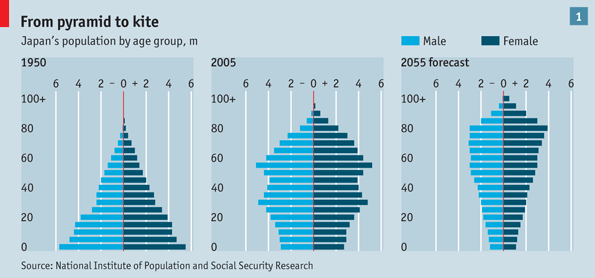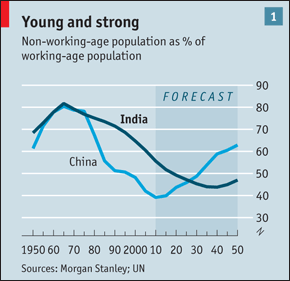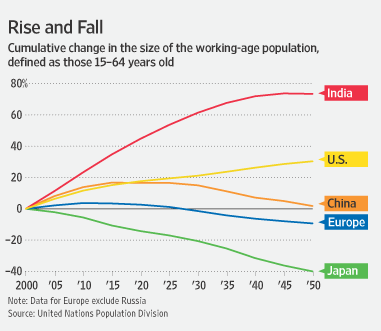 Stratfor's CEO George Friedman in his Geopolitical Weekly takes note of Angela Merkel's speech to the young members of her Christian Democratic Union.
Stratfor's CEO George Friedman in his Geopolitical Weekly takes note of Angela Merkel's speech to the young members of her Christian Democratic Union.
As the FT reported it, "Ms Merkel said Muslim immigrants and indigneous Germans must do more to encourage integration." To that end, she said: "We should not be a country that gives the impression . . . that those who don't speak German immediately or who were not raised speaking German are not welcome here."
But how Friedman spun it was fear-mongering at its best--fairly shoddy for a company that says it will make you more intelligent about the world.
The piece starts out just fine:
German Chancellor Angela Merkel declared at an Oct. 16 meeting of young members of her party, the Christian Democratic Union, that multiculturalism, or Multikulti, as the Germans put it, “has failed totally' . . .
The statements were striking in their bluntness and their willingness to speak of a dominant German culture, a concept that for obvious reasons Germans have been sensitive about asserting since World War II. The statement should be taken with utmost seriousness and considered for its social and geopolitical implications. It should also be considered in the broader context of Europe’s response to immigration, not to Germany’s response alone. . .
The onus on assimilating migrants into the larger society increased as Muslim discontent rocked Europe in the 1980s. The solution Germans finally agreed upon in the mid-to-late 1980s was multiculturalism, a liberal and humane concept that offered migrants a grand bargain: Retain your culture but pledge loyalty to the state.
In this concept, Turkish immigrants, for example, would not be expected to assimilate into German culture. Rather, they would retain their own culture, including language and religion, and that culture would coexist with German culture. Thus, there would be a large number of foreigners, many of whom could not speak German and by definition did not share German and European values.
While respecting diversity, the policy seemed to amount to buying migrant loyalty . .
Friedman then talks up the different experience of the U.S. and contrasts the German "grand bargain."
The Germans tried to have their workers and a German identity simultaneously. It didn’t work.
Multiculturalism resulted in the permanent alienation of the immigrants . . .
Then he gets truly weird:
What is fascinating is that the German chancellor has chosen to become the most aggressive major European leader to speak out against multiculturalism. Her reasons, political and social, are obvious. But it must also be remembered that this is Germany, which previously addressed the problem of the German nation via the Holocaust. In the 65 years since the end of World War II, the Germans have been extraordinarily careful to avoid discussions of this issue, and German leaders have not wanted to say things such as being committed to a dominant German culture. We therefore need to look at the failure of multiculturalism in Germany in another sense, namely, with regard to what is happening in Germany. [emphasis mine]
So far we've got Merkel saying she still needs foreign workers, but that she wants them to integrate and truly join the German nation rather than be ghettoized, but Friedman's already insinuating the possibility of something far more sinister, as if modern Germany's choices here fall into the binary pairing of multikulti versus the Holocaust!
Seems a bit stark, ja? As if Germans today are barely self-contained Nazis just waiting for the right moment to break out? I mean, where does Friedman get the evidence to jump back over the past 65 years of German behavior and simply bring up the Holocaust? Sure, I can always find you some racist right-wing Bavarian pol who speaks of "alien cultures." Heck, we've got these retrograde types in the U.S. in good numbers, but jumping from that modest reality to invoking something on the level of genocide is a bit much, is it not? Can't we get some more sophisticated analysis that explores scenarios between those two extremes?
Remember, Friedman's book, The Next 100 Years, features a WWIII in the 2050s range, with Turkey subbing for Nazi Germany and Japan playing themselves in the new axis (Coalition), and the U.S. partnering with Poland this time. Germany, naturally, sympathizes with the new axis. While Japan and the US duke it out on the Moon (our seemingly indestructible Battle Star buys it just like Pearl Harbor!), Germany sees its chance on Poland and launches a 21st-century bliztkrieg in 2051 (page 205)--France in tow. But, as luck would have it, we pull a new Battle Star out of our toolkit, which stuns everyone (I know, scenario by George Lucas), and we rescue the embattled Poles (Germans to the right of me, Turkish to the south, here I am, stuck in the middle with you) with our cool new batteries fueled directly by the sun.
Anyway, to make this kind of dark-star future happen, Friedman needs a Germany that goes its own way in Europe--the return of 20th-century nationalism.
And he thinks he's found it in Merkel's speech:
Simply put, Germany is returning to history. It has spent the past 65 years desperately trying not to confront the question of national identity, the rights of minorities in Germany and the exercise of German self-interest. The Germans have embedded themselves in multinational groupings like the European Union and NATO to try to avoid a discussion of a simple and profound concept: nationalism. Given what they did last time the matter came up [emphasis mine], they are to be congratulated for their exercise of decent silence. But that silence is now over . . .
So there it is, subscribers, just in case you missed it. The Nazis are back and all of Europe is at risk!
I have to you, I consider this to be complete nonsense and bad history to boot. Germans have not spent the last 65 "desperately trying not to confront the question of national identity." My God, these people have spent the last 65 years agonizing over it ad nauseum--and very publicly. Friedman would have a better go of it pinning that analysis on the Japanese.
And all this because the Greeks couldn't handle credit cards:
After the Greek and related economic crises, the certainties about a united Europe have frayed. Germany now sees itself as shaping EU institutions so as not to be forced into being the European Union’s ultimate financial guarantor. And this compels Germany to think about Germany beyond its relations with Europe.
Wait for it, here comes the Lebensraum pitch: "Ve need verkers, ja!"
Consider that Merkel made clear that Germany needed 400,000 trained specialists. Consider also that Germany badly needs workers of all sorts who are not Muslims living in Germany, particularly in view of Germany’s demographic problems. If Germany can’t import workers for social reasons, it can export factories, call centers, medical analysis and IT support desks. Not far to the east is Russia, which has a demographic crisis of its own but nonetheless has spare labor capacity due to its reliance on purely extractive natural resources for its economy. Germany already depends on Russian energy. If it comes to rely on Russian workers, and in turn Russia comes to rely on German investment, then the map of Europe could be redrawn once again and European history restarted at an even greater pace . . .
Once again, Germany looks East--with desire!
Okay, I kid a bit, but seriously, this is how Friedman extrapolates Merkel's fairly sensible speech?
How about this notion:
It is impossible for Germany to reconsider its position on multiculturalism without, at the same time, validating the principle of the German nation. Once the principle of the nation exists, so does the idea of a national interest. Once the national interest exists, Germany exists in the context of the European Union only as what Goethe termed an “elective affinity.” What was a certainty amid the Cold War now becomes an option. And if Europe becomes an option for Germany, then not only has Germany re-entered history, but given that Germany is the leading European power, the history of Europe begins anew again.
This isn’t to say that Germany must follow any particular foreign policy given its new official view on multiculturalism; it can choose many paths. But an attack on multiculturalism is simultaneously an affirmation of German national identity. You can’t have the first without the second. And once that happens, many things become possible.
This isn't analysis of the real issues; this is dredging up old imagery to scare you into thinking that Germany can't move beyond multikulti to anything but the destruction of the EU concept, and frankly, that's a whopper to begin with, given Germany's integral role in creating and sustaining the European community all these decades. Truth is, you can attack the head-in-the-sand approach of multikulti without simultaneously boosting the notion of the exclusivity of German identity. Merkel is searching for something bigger, not smaller.
European nationalism had its last gasp in the Balkans. What Germany now confronts it a post-modern concept called identity. Nationalism is externally focused; identity is internally focused. Friedman, in my opinion, misuses the concepts to make you scared about untold-but-all-too-familiar-for-people-of-a-certain-generation possibilities. The future is about what the young think, not about what the old fear.
It is an old story in this business: when you constantly bet on conflict/decline/devolution, you spend all your time looking for supporting evidence, rather than simply exploring where the evidence may take us. The analysis I've always tried to bring to bear involves helping people get to where they want this world to be, versus running from past demons. Leave that level of fun to Quentin Tarantino.
Friedman needs to elevate his game and stop peddling these reruns of the 20th century. Stratfor does some nice work, but analysis needs to be more than simply regurgitating old scary stories to keep people up at night. The complexity of issues we confront going forward requires a collaborative solution-oriented mindset.
 Friday, March 16, 2012 at 10:59AM
Friday, March 16, 2012 at 10:59AM 
































